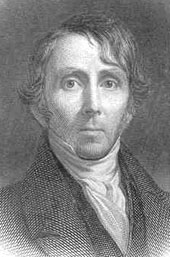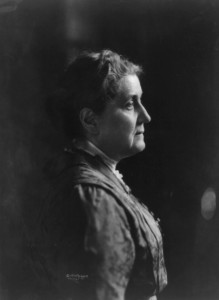Blessing for Something New
September 1, 2016New beginnings–whether starting a new grade or moving to a different city or taking on a new sport or hobby–can be kind of scary. Here is a blessing that you can say for yourself when you’re feeling worried about taking on something new:
Walking through this open door
I carry with me blessings four:
The love that surrounds me,
The knowledge that grounds me,
The courage that lifts me,
The chance this door gifts me.
Bonus: A pep talk for teachers and students from Kid President
When did Unitarians begin?
September 1, 2016There are different ways that you could define the beginning of Unitarianism. But many people would say that Unitarians were first defined as a distinct religious movement by William Ellery Channing, in a sermon given in 1819.
In this sermon, called “Unitarian Christianity” (or sometimes “The Baltimore Sermon,” because he gave it at an ordination in Baltimore), Channing laid out what he though were the particular beliefs of the group of liberal Christians who were sometimes referred to as “Unitarians.”
Unitarians, he said, did not believe in the trinity of God the Father, God the Son (Christ) and the Holy Ghost—which is what gave the group the name Unitarian, for the unity of God. But more than that, he described Unitarians as believing in human goodness, and believing in the importance of using reason in looking at religion.
Channing said that thinking is one of the most important gifts that we are given as human beings, and that surely God expected us to to use our gifts of reason in understanding religion as well as the rest of life.
In 1825, just six years later, the American Unitarian Association became the official organization of the Unitarians.
An Invitation Song
February 1, 2016Here is a fun and lively song that’s perfect for getting excited about something new. Perhaps you could sing it in the morning, whether it’s the start of a new day–or the start of the weekend! The first verse says, “Enter, rejoice and come in!” This is a great invitation to extend to people, to ideas, and to new experiences.
What would you like to invite into your life? To whom will you extend a welcome today?
A House for All
February 1, 2016You could argue whether Jane Addams was a Unitarian, since she regularly went to a Unitarian church, but never joined. But you can’t argue about whether she understood the true meaning of hospitality.
Jane grew up in a wealthy family, but when she discovered as a child that many poor people in the cities lived in terrible conditions, she wanted to make a difference. In 1889 she and Ellen Starr founded Hull House, a big house in Chicago which offered a place for the many poor recent immigrants in the city to take part in clubs, discussions, and activities, as we ll as take English and citizenship classes, and enjoy theater, music, and art classes.
About 25 people actually lived at Hull House, and Jane made sure that both wealthier people and poor immigrants lived there together, since she believed that people with different experiences could learn a lot from each other. Jane Addams and the other women who ran Hull House with her created an amazing space of hospitality where people could learn, grow and have fun together. In 1931 she was awarded the Nobel Peace Prize.
Learning More Online:
To learn more about Hull House, and the visionary women who founded it, visit the National Women’s History Museum website. The Jane Addams-Hull House Museum today serves as a living legacy to Jane Addams and her vision of hospitality for all; learn more about their ongoing work at hullhousemuseum.org
Renew Your Membership
We invite you to join your fellow CLFers to renew your CLF membership and stewardship of the CLF for another year.
Support the CLF
Can you give $5 or more to sustain the ministries of the Church of the Larger Fellowship?
If preferred, you can text amount to give to 84-321
Newsletter Signup
About
Quest for Meaning is a program of the Church of the Larger Fellowship (CLF).
As a Unitarian Universalist congregation with no geographical boundary, the CLF creates global spiritual community, rooted in profound love, which cultivates wonder, imagination, and the courage to act.
Contact
Church of the Larger Fellowship Unitarian Universalist (CLFUU)
24 Farnsworth Street
Boston MA 02210





